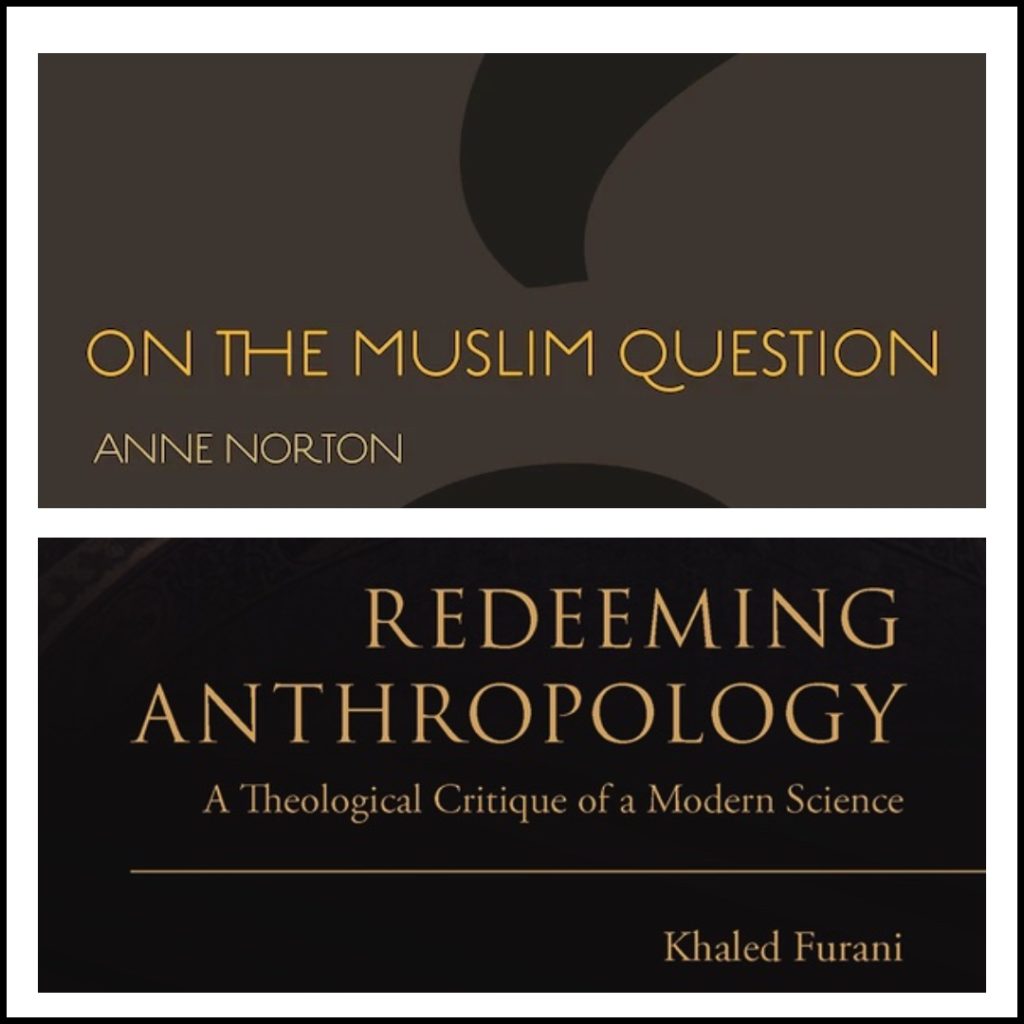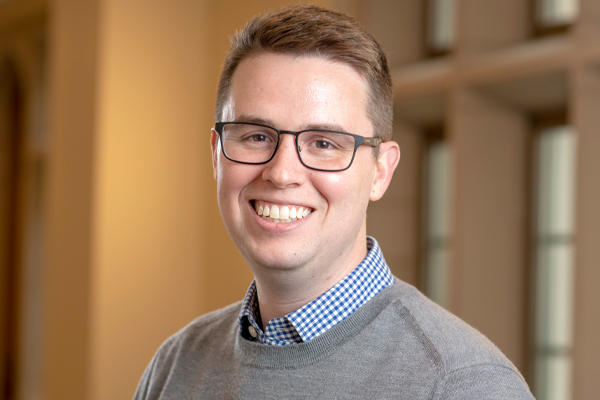
On March 24, 2022 Ebrahim Moosa delivered his inaugural address as the first holder of the Mirza Family Chair in Muslim Societies and Islamic Thought. The following day a symposium was held in which two topics key to Moosa’s academic research were discussed: the place of the Muslim in the modern west and the role of theology in the study of anthropology/religion. In two panels spread across the morning, scholars from Notre Dame and abroad discussed and debated these issues.
The first panel was on Ann Norton’s powerful book, On the Muslim Question. This book not only describes the problem of Islamophobia in the modern west but also articulates where challenges to it can be found. This problem is not only characteristic of right-wing political rhetoric, Norton contends, but can be found in the in the speeches and works of otherwise progressive politicians and academics. In response to Norton’s book, Atalia Omer, Professor of Religion, Conflict, and Peace Studies at the Keough School of global affairs, thinks with Norton about the need to seek out “Andulsiasas”—here referring to the time when Jews, Christians, and Muslims coexisted in the early modern period in Spain. Omer laments that the question of Islamophobia remains so relevant to our discussions and reflects on her own experience of engaging the “clash of civilizations” thesis of Samuel Huntington. This “thesis” has provided an intellectual stamp of approval for Islamophobic attitudes, practices, and policies. In his response, Peace Studies and Political Science doctoral student Mahmoud Youness reflects on the continued challenge of Islamophobia as well. He contends that no amount of rational persuasion is likely to end Islamophobia in the west. He further argues that a materialist analysis of the problem of Islamophobia suggests that as long as neoliberalism runs rampant in the west, politicians will be tempted to exploit ethnic and religious differences for the sake of gaining power.
The second panel covered Khaled Furani’s book Redeeming Anthropology: A Theological Critique of a Modern Science. Furani’s book offers a forceful critique of the modern field of anthropology, arguing that in it attempting to separate itself from theology it has left behind valuable theoretical resources from which it could benefit. In interviews with anthropologists, he demonstrates the often-unacknowledged theological debt of anthropology to theology and argues for a reintegration of theology into anthropology. He draws on theological concepts like idolatry to demonstrate the benefit that such reintegration will entail. In his response to the book, Contending Modernities editor and writer Joshua Lupo pushes Furani to reflect further on how less theologically loaded concepts like fallibilism might fit into Furani’s argument. The latter seemingly accomplish similar goals like idolatry without tying the one who employs them to a particular religious tradition. In conclusion he draws on the work of Ted Chiang to argue that the binary that Furani sets up between theology and anthropology might exist more in our imagination than in reality. Khan Shairani, a doctoral student in Peace Studies and History, asks Furani to reflect on his argument beyond the boundaries of anthropology. What, for example, would it mean to apply Furani’s insights about the field of anthropology to the field of history? Shairani contends that where anthropologists look for differences in cultures outside their own, historians look for differences in the past. This similarity in searching for differences, however, means that historians should also hold the categories they employ to understand the past up for critical scrutiny. Shairani ends his piece with a series of questions focused on the relationship between history, anthropology, and decolonization.
In response, Furani and Norton take up the themes raised by the panelists. Norton reflects on the differences between her and Youness’s approach to understanding solidarity and engages with Omer on the ongoing problems with strict notions of secularism that continue to divide us more often than those who employ them believe they do. Furani thinks with Shairani about what it might mean to extend his reflections beyond the field of anthropology and with Lupo on the reasons for his embrace of a theological vocabulary versus a secular philosophical one.
In addressing challenging questions about how to confront Islamophobia in West and how to reimagine the study of religion today, this symposium speaks to Professor Moosa’s unique approach of combining academic rigor with timely and necessary intervention in the public realm. In the future, events that further discussion on these topics will be pursued under the auspices of the Mirza chair and Contending Modernities.

